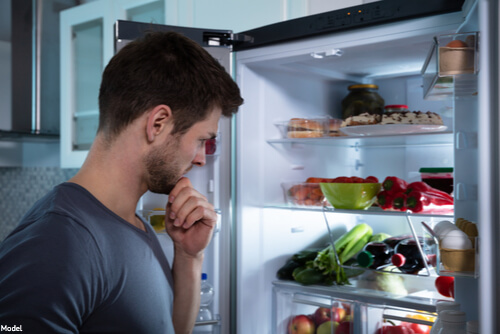Being stressed out is a natural and often unavoidable aspect of life, especially considering all that’s been happening this year. One of the most common reactions to stress is overeating. Not only that, but overeating is also common when we’re feeling bored or lonely. When you think about it, being in quarantine — although lifesaving — is the perfect storm for stress, boredom and overreating!
That’s why we wanted to share some advice from Health.com on how to recognize your overeating habits and get better at avoiding them. After all, making small adjustments to your daily lifestyle can be extremely effective not just for weight loss but for better health and wellness overall.
Make switches to your snacks that still satisfy the craving
Think about the kind of snacks you most often reach for when you’re stressed, lonely or bored. Are they salty or sweet? If you lean toward sweet snacks, for example, you may be able to successfully swap the cookies, ice cream or other sweets for fruit like berries or melon. When you switch from processed snacks that often have little to no fiber, over to fresh fruits, veggies, dark chocolate or protein-packed nuts, you’ll also satisfy your cravings for longer instead of feeling “snacky” again an hour later.
Eat on a regular schedule
We all know that if we don’t eat all morning, we’re bound to have an extra big lunch. The same can be said for dinner if we don’t stop for lunch. The key is to keep yourself from going too long without a meal, because it will only lead to overeating when you do have your next meal. Everyone’s daily schedule looks different and it may not always be easily predictable, but it’s still possible to make a point to eat something substantially satisfying three times a day — meaning something with sufficient fiber, protein and nutrients. This will also help to reduce your desire for unhealthy snacks in between!
Practice mindful eating
A great way to start eating more mindfully is to stop eating meals in front of the TV or your phone. Being less distracted can help you be more aware of what you’re eating and how much. It can also help you pay more attention to how fast you eat, which is important because eating at a slower pace than normal is beneficial not just for digestion but also to give your brain time to signal that you’re full. This can keep you from eating to the point that you feel “stuffed” at each meal. In addition to removing distractions like TV and phones, you can also make a point to sit at the kitchen table or in the dining room, where you’re more removed from seeing other food nearby while you eat. This can help minimize additional cravings and second helpings.
Walk a different path
This may sound a bit silly, but it really is all about changing your daily habits, including how often you walk past your favorite snacks. If you often have a late-night snack because you walk through the kitchen to let the dog go outside before bedtime, you can try simply taking a different route to let the dog out. In this same vein, it’s helpful to keep your favorite snack foods closed away in a cabinet, drawer, pantry or anywhere else so they aren’t out on the counter or table where you’ll see them as you walk by. The phrase “out of sight, out of mind” can be a valuable one to remember in this situation!
If you’ve been struggling with overeating from stress, boredom, loneliness or any other reason, we hope you know that you’re not alone and that you have the power to stop! If you feel you need more help than just these tips in order to lose weight and lead a healthier lifestyle, the professionals here at Solace Wellness Center & MedSpa are available for weight loss and lifestyle coaching. Just give us a call at 978-851-8600 or request a consultation online today to learn more.
Sources used in this blog:

